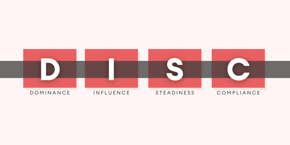It’s true, there is a certain art to being a great salesperson.
While there are certain personality traits and characteristics that most salespeople will identify with, tenacious, positive and resilient to name a few, there are also various tricks and tips that will help you if you’re new to sales.
Being new in the world of sales can be daunting, but these 5 sales tips for beginners will help you navigate the world of sales, ace your targets, and land your first big win.
1. Know who you’re selling to
It’s easy to fall into the trap of selling to everyone and anyone.
But many seasoned pros will be able to tell you that this isn’t the answer, and will only get you a lot of rejection, a lot of wasted time, and not much success.
You’ll spend a lot of time reaching out to people who don’t want to talk to you, and no matter how good you are at pitching, if they don’t want to talk, they don’t want to talk.
Before you dive straight into selling, take the time to define your audience and get to know who you’re selling to.
From the typical job title your ideal customer has to the type and size of company they work for, there’s lots of small details that can massively help you narrow down your search and put you on the path to a win.
2. Know your product inside out
Think you know your product or service? Think again.
Your prospects will want to know everything about your product, all of the ins and outs and tiny details before they fully comit, and they’ll probably have a lot of questions too.
It’s important that you’re able to confidently answer all of the questions, and swiftly put any concerns to bed.
If you’re selling into an industry that you’re not familiar with, or as someone who’s new to sales, you might need a bit of a refresher on some of the key points of your product or your industry, but it’s important that you take the time to get to know what you’re selling.
Got a question that you’re not sure about? Don’t bluff your way through it, just tell your prospect that you’ll take their question to the team and get back to them (make sure you remember to get back to them as soon as you can).
3. Focus on your client’s needs.
People like to feel special and want to feel as though the salesperson genuinely wants to solve their problems and takes an interest in their business, not just looking for a quick sale.
The best method to capture their attention is to ask questions that help you understand their needs and pain points.
Remember, you’re having a conversation with another human being, so it should flow like a natural conversation and not feel scripted.
Open-ended questions give you the best response as your prospect will give you a detailed description of their business, rather than one-word answers.
“What’s not working for you with your current CRM system?” or “Can you tell me about your current sales process?”
There’s no limit to the number of questions you should ask; just make sure to actively listen to the answers so you understand if your product is a good match to solve their problems.
4. Sell benefits not features.
Arguably one of the most important sales tips for beginners is to sell benefits and not features. Features have their place, but it’s benefits that make the sale.
If you’re not sure what the difference is here’s a couple of quick examples:
| Feature | Benefit |
| A car has 55W halogen headlamp bulbs | You can see 30% further at night |
| Batteries are included with a torch | The torch is ready to use out of the box |
| A new smartphone has a 4.3” screen | A bigger screen means it is easier to view office documents and/or less zooming in on a webpage |
Why are benefits better? Because they’re more persuasive than features.
Take the halogen headlamp bulb for instance, why would a prospect care that a car has different bulbs? Without mentioning their true purpose, the prospect may not see what they actually gain from the feature.
You can always expand further too – ‘You can see 30% further at night so your family will be safer on the road’. The more you can break down the feature to find a specific benefit to your prospect will give you a much better chance of making the sale.
So why do most salespeople neglect selling benefits?
It's easier to talk about features, and they’re usually the first thing a salesperson will learn about their product or service. It requires empathy and imagination and extra research to sell a benefit.
But once you go that extra mile, you’ll take the step from a good salesperson to a great.
5. Know when to close a sale.
Closing a sale is probably the biggest fear for someone new to sales, but there is a certain skill to knowing when to close a sale.
It can feel pushy and timing is crucial, but the good news is that if you have identified that your product or service can solve their problem, you know their needs and you’ve clearly pitched the benefits in a specific and personal way, your prospect is expecting to be closed.
Remember, your prospect knowingly entered into a sales situation with you so there is no hiding the fact that you are trying to sell them your product. All you’re doing is moving from an investigation phase to them making a decision.
There are ways to soften the close such as asking, “So, what do you think?”.
This opens up an opportunity to close and brings out any concerns they may have which you can then address.
You could also try asking, “When shall we talk next?” or “Have you heard enough to make a final decision?”
Get a head start in sales by using our sales intelligence software. Get a free 30 minute demonstration and see how you can become a selling superhero.




.png?width=1080&height=228&name=Want%20to%20find%20out%20more%20about%20how%20sales-i%20can%20mix%20your%20hard%20and%20soft%20data%20together%20(2).png)